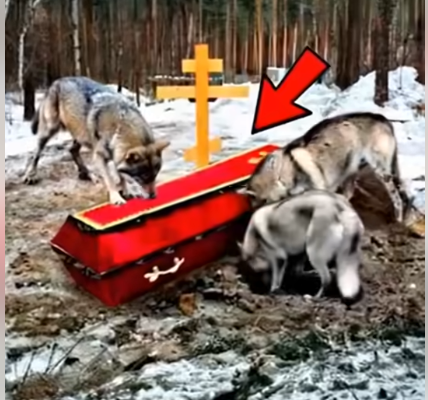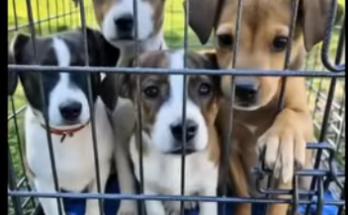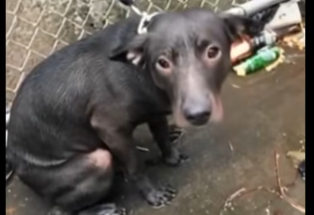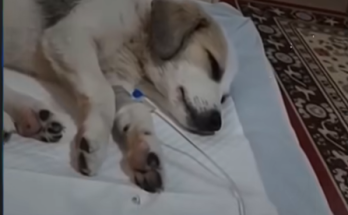The wolves howled and dug a fresh grave. People came running from all over the village when they opened it, and they were paralyzed by what they saw.
It began with the wind. That week, the sky never cleared. Clouds hung low and pressed against the crooked roofs of the village like a burden. The nights were louder than the days, as if the earth whispered things the living were not meant to hear. Most ignored the sounds—trees moaning, foxes barking—but when the wolves began to howl at midday, people noticed.
Wolves did not howl in daylight. They did not come into the village. And they certainly did not dig.
At first, the children playing near the old cemetery thought it was a dog. The largest of the pack, its fur dark as peat, clawed steadily at the edge of an unmarked patch of soil. Three more wolves paced in a circle around it, heads low, hackles raised. The villagers heard the commotion and came running, expecting to find a hurt animal or a rabid pack. What they found instead was a hole—and inside it, something no one expected.
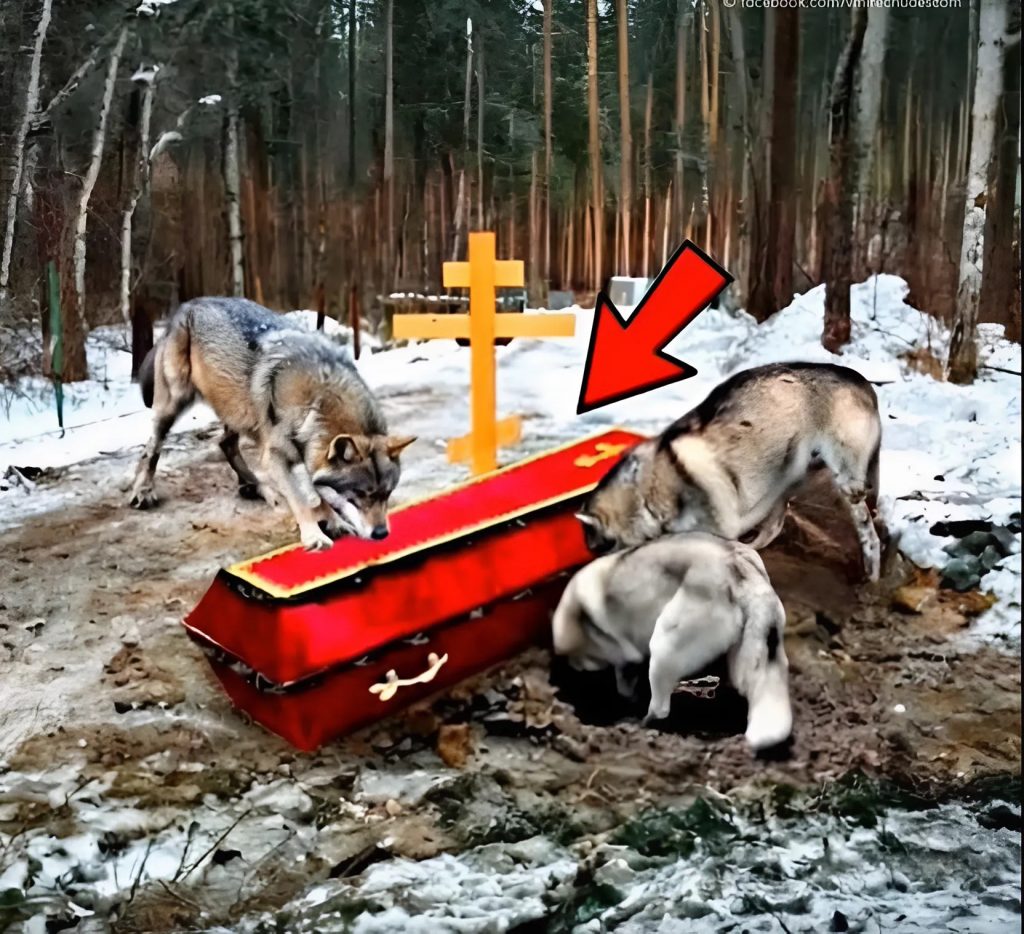
It was a coffin, but not like any they had seen before. Bound in rusted iron, sealed with melted wax, and wrapped in salt-soaked linen, it looked ancient, far older than the church or the graves around it. There was no headstone. No record of a burial in that space. And yet there it was, nestled in the earth like a secret waiting to be unearthed.
The wolves stood silently now, as if their work was done. The large one sat beside the open grave, eyes fixed on the villagers with a gaze that felt almost human. No one moved. Even the wind held its breath.
It was old Martha, the herb-woman, who broke the silence. She knelt beside the grave and whispered something to herself—some forgotten prayer perhaps, or a spell from a time before the church bells silenced the old gods. She reached out and touched the coffin, and then recoiled.
“It’s warm,” she said. “It’s warm as a body in spring.”
The crowd stepped back. Some began to cross themselves. Others called for the priest. A few turned and walked away, refusing to believe what they’d seen. But most stayed.
When the priest arrived, he ordered the coffin opened. He argued that it was the only way to ensure no blasphemy had been committed, that no soul had been buried unblessed. A few of the younger men pried the lid off with a crowbar, straining against the iron and wax. And when it finally cracked open, they wished they hadn’t.
Inside was a man. Or something like one.
He wore clothes that had not rotted, though they were clearly from another century. His skin was pale, almost translucent, and drawn tight against his bones. But he did not look dead. Not truly. His chest rose and fell with shallow breath. His lips were stained red, as if he had just fed. And worst of all, his eyes were open—and looking directly at the priest.
People screamed. One woman fainted. A boy vomited. But the wolves did not move. They simply stared.
The priest tried to speak, but no words came. The thing in the coffin smiled—a slight twitch of the lips, more like mockery than joy. Then, without warning, it sat up.
Chaos erupted. People ran. Some fell. A few tried to attack the creature, but the wolves stepped in front of it, snarling. The dark one—clearly the leader—placed its body between the man and the villagers and growled low and long.
And then, to everyone’s horror, the man reached out and placed a hand gently on the wolf’s head.
The connection was unmistakable. They knew each other. The villagers, once a distant blur in the man’s cold gaze, now realized they were no more than spectators in an ancient play that had begun long before their time.
Martha whispered something again, this time louder: “It’s him. It’s the Pale King.”
A name out of legend. A name the elders spoke of only after drink had loosened their tongues. A warlord who had vanished centuries ago, said to have made a pact with the wolves of the north. A man who could not die, only sleep, and who would rise again when the forest cried out in blood.
That year, the forest had cried out.
For weeks leading up to the grave’s unearthing, animals had been found torn apart, not by predators, but something more deliberate. Hunters vanished. Trees bled sap the color of rust. And the wolves, once reclusive, had begun to circle the village at night, leaving strange patterns in the snow.
Now it all made sense.
The man—the Pale King—spoke at last, his voice barely above a whisper, but every word rang clear as a bell.
“You woke me too soon.”
The villagers froze. No one answered. He looked around, as if taking stock of the world. Then he stood, impossibly tall, and turned toward the forest.
The wolves followed. All but one.
The dark wolf, the leader, remained at the edge of the grave and watched the villagers until the last figure had vanished into the trees. Only then did it turn and run, disappearing into the mist like a shadow at dusk.
